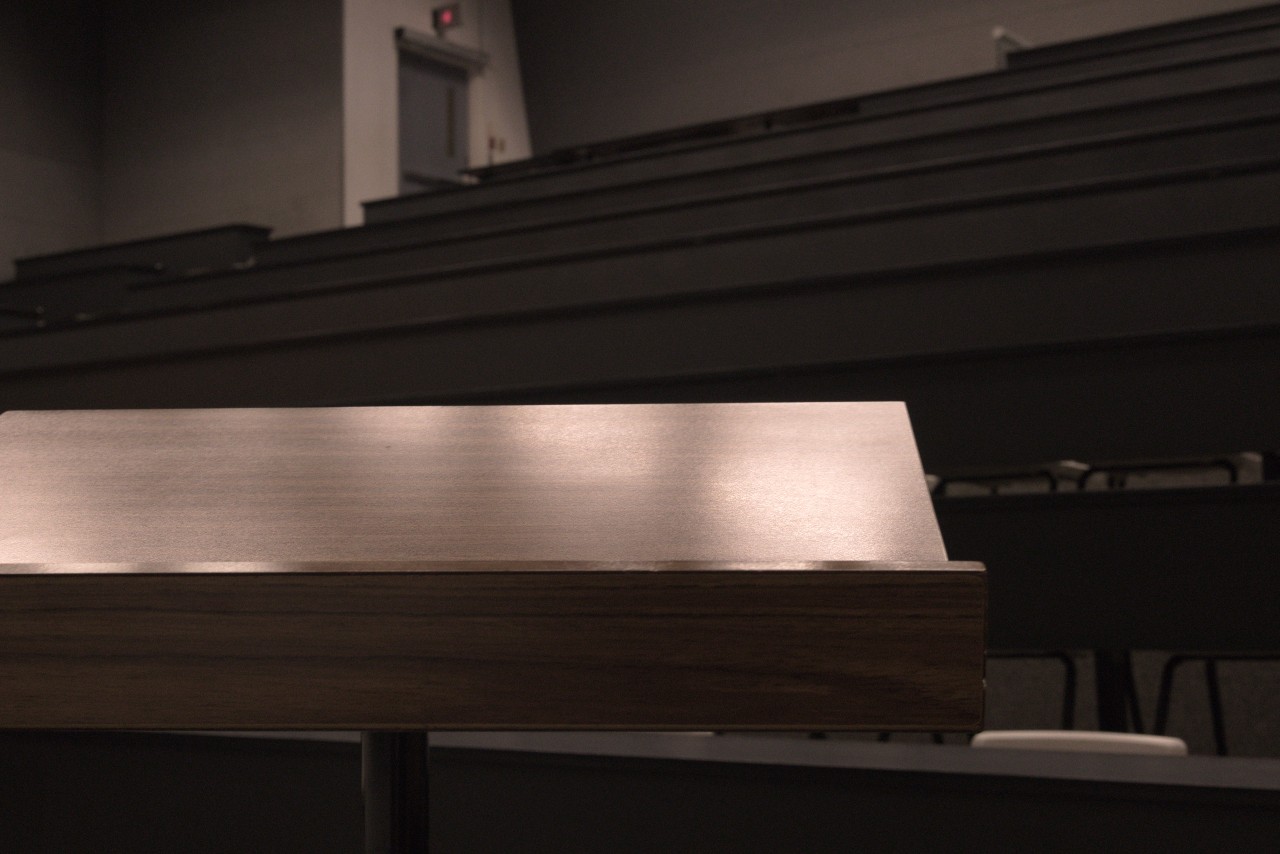LA&PS’ student council has chosen two “very personable” and “very dedicated” teachers as recipients of the 2024 Ian Greene Award for Teaching Excellence, says the awards’ namesake, Professor Emeritus Ian Greene.
The award, chosen by a committee of LA&PS students based on their peers’ nominations, was created in honour of Greene in 2007.
This year, the two recipients are Professor Natalie Neill of the Department of English and teaching assistant Hiba Ibrahim of the Writing Department. Both describe receiving the award as an honour, particularly because they were selected by students.
“I was so honoured,” exclaims Neill, who teaches and researches 19th-century Romantic and gothic literature with an interest in film studies. “I can’t imagine a better job than being a university professor.”
Ibrahim describes receiving the award as “a great way to wrap up a difficult semester,” referencing the strike that impacted campus this past year. “The fact that I was nominated by my students, despite all these difficulties, I think was really a great honour.” Ibrahim is currently a PhD student researching “the experiences of university-level English language learners/students [and] their intercultural competence in virtual exchange.”
In July, Greene hosted a barbecue to honour the award recipients and thank the students, describing it as “one of the events that I enjoy most in the whole year.” Neill was on hand to meet Greene and the student volunteers, while Ibrahim joined the event via Zoom.
“I think it’s important both for the recipients, and the students who’ve done so much work to adjudicate the award, to meet each other,” Greene says. He describes the process by which recipients are chosen as “very rigorous,” and previously told Excalibur that “it’s the students who choose who they think are the best teachers.”
Neill and Ibrahim are both happy that students’ voices are heard. Neill describes this aspect of the award as “affirming,” and that it “makes [her] feel like [she’s] doing something right.” Ibrahim concurs: “I was really grateful and very happy that what I’ve been trying to do for the past two years in this course, particularly this past year, has been well received by my students.”
Neill also told Excalibur about academic life and why she believes it is important. She posits that “there are fewer and fewer places in this world where we have the freedom to sit down with other people and exchange ideas and grow.” For her, the university is one such place.
“I think we have our objects of study — for me, it’s books, it’s poems, it’s novels and plays — but in a way, we’re not just learning about the literature that we’re studying,” she explains. “We’re exchanging ideas and we’re honing our critical skills, our ability to think sharply and rationally and imaginatively.”
Neill concludes that this is “one of the beautiful things about higher education.”
Ibrahim, meanwhile, shares her perspective on her students. It reflects the rationale given by SCOLAPS as to why she was selected.
“All of my students have their own human experiences that they bring to the classroom,” she says. “I try my best to bring in those experiences, their backgrounds, their upbringing.”
Ibrahim believes that “one of the most important tasks” of teaching “is to make sure that you have this open environment where students can thrive.”
Greene himself knows a lot about teaching from a student-centred perspective. As a York professor since 1985, he says he actively sought out feedback from his students about how to improve his teaching. He says he “would advise people who are thinking of going into teaching to see themselves not just as imparters of knowledge, but as role models, advisors, and mentors to their students.”
___
EDITOR’S NOTE: Hale Mahon (author of this article) is the director of the Ian Greene Award.


